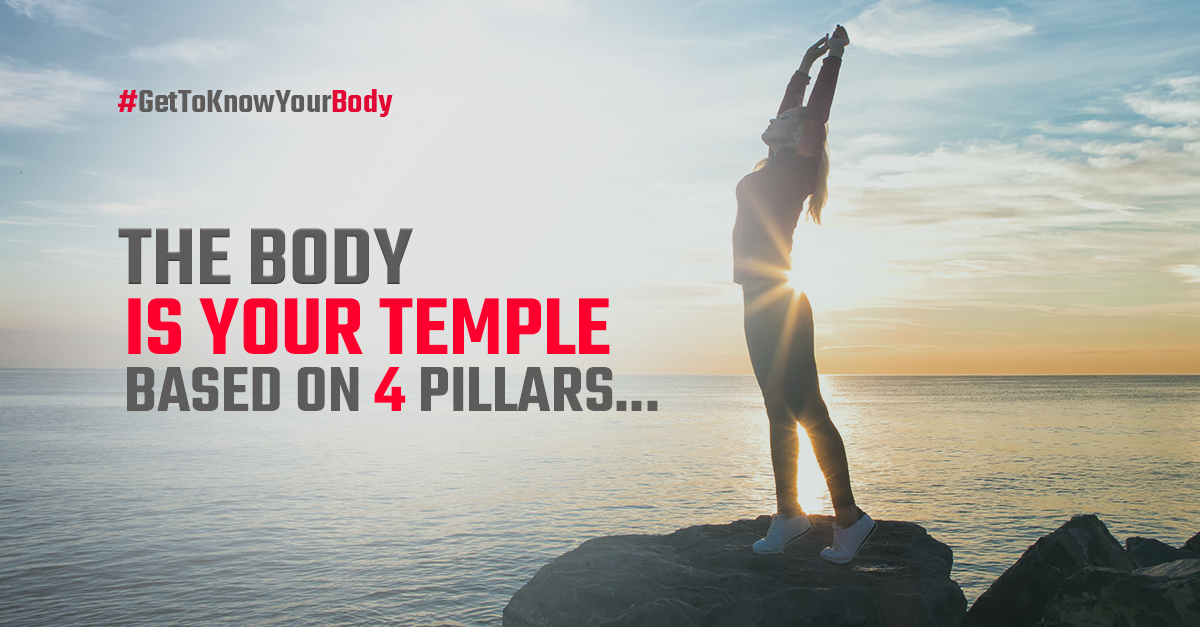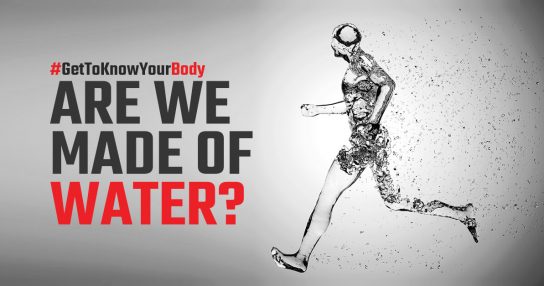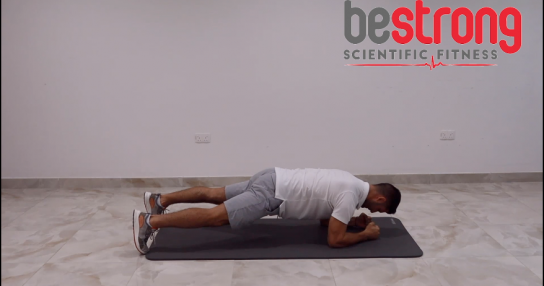“The general who wins the battle makes many calculations in his temple before the battle is fought. The general who loses makes just a few calculations beforehand.” Sun Tzu
This is not a war but this something that we need to apply daily. Whenever we need to do something, planning is required. Before you go to bed – you need to plan the next day. If you want to eat – you need to prepare the food. If you want to be healthy, strong, and happy – we gat your back!
A college professor said once that the most significant difference between animals and humans is the level of conscience. In that manner, just thinking that we are aware of our actions, needs, and habits making us very superior. Unfortunately, there are so many examples of humanity losing control over their own health – mental and physical. Of course, some of the reasons are very objective, but we will talk about subjective ones we can manage today. They are four pillars of the body as a temple – nutrition, hydration, sleep, and physical activity.
The human body is guided by the sensory system (8 of them), which is part of the nervous system. The sensory system is very reactive to environmental changes and responding accord to the signals in and outside of the body. We have visual (sight), auditory (hearing), olfactory (smell), gustatory (taste), tactile (touch), vestibular (balance and motion), proprioceptive (body awareness), and interoceptive (internal condition of the body) sensory system. All of them are very important, but the body’s internal condition can make a big difference in so many aspects.
Nutrition and Hydration
Interoception is a sense that provides information about the body’s internal condition — how our body is feeling on the inside. Interoception allows us to experience many body sensations such as a growling stomach, dry mouth, tense muscles, or racing heart. Awareness of these body sensations enables us to experience essential emotions such as hunger, fullness, thirst, pain, body temperature, need for the bathroom, sexual arousal, relaxation, anxiety, sadness, frustration, and safety.
For example, noticing a growling stomach serves as a clue that we are hungry and encourages us to eat. Seeing a tight or heavy stomach lets us know that we are full and that it’s time to stop eating. Noticing shivering muscles or goosebumps on the skin serves as a clue that we are cold and prompts us to look for a sweater. Seeing a tight chest, racing heart, and tense muscles let us know that we are anxious and urges us to seek comfort.
Unfortunately, this is a reality for many people with autism, anxiety, depression, trauma, eating disorders, obesity, toilet training difficulties, sensory processing disorder, and behavioral challenges. To simplify, whenever we are feeling emotionally imbalanced or physically tired, our body is trying to compensate with “sweet and salted substances”. With the idea to temporarily increase blood sugar and give an additional boost of energy, the body is faking your mood just for a short period until insulin reduces it and puts you down in a previous or even worse state than before. Continuing with this hormonal game, in the end, we will always lose because we are becoming nominated for many diseases and disorders like diabetes, obesity, heart issues, etc. Another extreme or disorder of the interoceptive sensory system is when the body cannot recognize when we are hungry or thirsty, very often for the same reasons as we mention before. In that scenario, our body is running in conditions like anorexia. Few more facts – whenever you are thirsty, you are already dehydrated. Whenever you are eating too sweet or too salted food, feeling full is postponed as fat has a late reaction, so the body makes fat storage.
One of the primary medicines to improve or back the interoceptive sensory system in the right way is sleep and physical activity.
Sleep
The phenomenon of sleep is something where humanity is looking for the answers, but the only thing we are sure of is that we can’t live without sleep. Within the brain, sleep enriches a diversity of functions, including learning, memorizing, and making logical decisions and choices. Sleep is improving our immune system, helping fight malignancy, preventing infection and sickness, balancing insulin and circulating glucose, and regulates appetite. There is a strong relationship between adequate sleep and the cardiovascular system’s fitness and lowering blood pressure.
Both sleep and mental health are complex issues affected by a multitude of factors, but, given their close association, there is strong reason to believe that improving sleep can have a beneficial impact on mental health and can treat many psychiatric disorders. Sleep and mental health are intertwined and become even more apparent by reviewing what is known about how rest is tied to some specific mental health conditions and neurodevelopmental disorders.
Based on a scientific understanding of sleep, we no longer have to ask why sleep is good. Instead, we are now forced to wonder is there something that sleep is not suitable for. The answer is straightforward: sleep is the cure.
Physical Activity
Another phenomenon. We are living in a time when society, culture, and science have become increasingly aware of the great importance of physical activity not only as a part of mass culture but broadly understood for individual social health and well-being. People’s physical activity plays an increasingly important role in the scientific interest regarding contemporary society’s way of life. It is a crucial factor in officiating a healthy and active lifestyle, quality of life, and health in general. The indispensable role of physical activity in human life is permanently scientifically confirmed in the prevention of obesity and other diseases and conditions.
The development of a sedentary lifestyle is the result of a socialization process towards physical inactivity developed in the youth and continued into adulthood. At present, we face an apparent tendency in our cultural settings: people are more and more individualized, losing beneficial impacts of community activities, involved in a passive way of life, lacking the proper level of physical activities.
During physical activity, our body firing certain hormones, known as happy hormones: dopamine (learning, memory, etc.), serotonin (sleep, appetite, digestion, etc.), oxytocin (trust, empathy, etc.), and endorphins (reducing stress, anxiety, etc.) Regular and proper physical activity strengthens your bones, improving muscular function and core stability, mobility of the joints, preventing injuries, pain, and stiffness. Simple making your body functional. Of course, when all this comes together, aesthetic benefits are just a logical result.
The quality and quantity of these four pillars (nutrition, hydration, sleep, and physical activity) are why your body is healthy as a temple. Don’t forget that our body is not just a physical, just as the temple is not as well. It is also emotional and spiritual. We need to work on that constantly.
Just remember that we are a very conscious species and very able to control our thoughts, emotions, needs, and actions. If we can do that, we can do everything.









